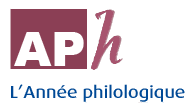About the Journal
Focus and Scope
Mare Nostrum – Studies on the Ancient Mediterranean is a journal published by the Laboratory of Studies on Roman Empire and the Ancient Mediterranean (LEIR-MA-USP). LEIR-MA-USP is based at the University of São Paulo (Brazil) and congregates classicists of many fields (history, archaeology, literature, among others). Our work covers a wide range of subjects and approaches in different times and contexts, therefore accounting for about 18 centuries of history (from XII BC to VI AD): from Attic pottery to Alexandrian papyri, from Athens to Gaul, from Homer and Herodotus to Strabo and Pliny the Elder, from the baths of Pompeii to jewish rebellions, and so on. In spite of such diversity, there is a common element connecting all individual researches: an interest in and a problematization of processes of social integration and disintegration in Antiquity. In different ways, we look at the Mediterranean region as the main stage of these processes, “like ants and frogs around a puddle” (Plat. Phaedo 109b).
The journal's goal is to consolidate a debate forum concerning the various aspects of Antiquity (economy, society, politics and culture) which predominated particularly in the geographical area currently known as Mediterranean, but also the universe of non-Mediterranean societies, i.e. the wider Ancient World, that direct or indirectly maintained relations with the Mediterranean. Thus, Mare Nostrum welcomes manuscripts of varied nature, such as articles, reviews, notes on final results of research, theoretical and methodological essays, and even out-of-the-box exercises of reflection. In this latter regard, we bear in mind that a certain degree of experimental audacity can be of great assistance in furthering the study of integration and desintegration processes occurring in several ancient societies. Otherwise, we run the risk of reifying or teleologizing the Mediterranean as an abstract and uniform entity disconnected from reality. Thus, the jornal seeks contributions from all fields of research aiming at establishing an open and frank discussion regarding the state-of-the-art of studies on Antiquity.
Frequency
Semiannual
Social Media
Facebook: https://www.facebook.com/leirmausp/
Laboratory Website: http://leir.fflch.usp.br/
Digital Preservation Policy
Mare Nostrum has its digital preservation assured by the Cariniana Network, coordinated by the Brazilian Institute of Information on Science and Technology. More details about the system can be found in the Digital Journal Preservation Guide.
Interoperability Protocol and Meta Tags
The content published by Mare Nostrum is available and traceable to several other databases through the OAI-PMH protocol (Open Archives Initiatives - Protocol for Metadata Harvesting).
Open Access Policy
This journal provides free and immediate access to its content, being a fully open access journal, which means that all articles are available on the internet to all users immediately upon publication. Non-commercial use and distribution in any medium is permitted, provided the author and the journal are properly credited. By providing free scientific knowledge to the public we contribute to a worldwide democratization of knowledge.








